In 2023, I read 162 books, watched 53 movies, and watched an additional 36 documentaries (so 89 films altogether). Here, I will reflect on this year’s patterns as well as share what I experience as “the best of the best” and “the worst of the worst” in each category.
Or, at least, that was my intention when I started writing this post back in December. Another annual round-up… just like other years. But this year I feel differently. I don’t know if it’s long-COVID impacting my mental capacities, or the fact that I’ve known almost 300 people who have died premature and preventable deaths in the war the rich are waging on the poor here as elsewhere in the world is giving my trauma brain, or the fact that we’re watching a genocide unfold on social media is also giving me trauma brain, or if I’m too overworked and underpaid to be able to think creatively, or if the labour it takes to eke out an existence for myself and my children under the austere gaze of neoliberal governance is crushing my soul, or if I’m suffering early onset Alzheimer’s, or what, but I just don’t have it in me to sit down and write the reviews I usually write. Thus, this post will be even more brief and unsatisfying than my usual reviews. The best of the best really are great. And the worst of the worst really were, for me, the worst. Be that as it may be, here’s the list.
Books: The Best of the Best
Of the 162 books I read in 2023, the work of Christopher Bollas was most exciting, inspiring, and transformative for me. The Shadow of the Object: Psychoanalysis of the Unthought Known is my best book of the year (even though it was published in 1987!). Interestingly, this was my second year in a row that a psychoanalyst came out on top of everyone else (last year, it was Darian Leader). The other two stand-out books by Bollas that I read in 2023 were Three Characters (2021) and Catch Them Before They Fall (2013). Altogether outstanding work, I will absolutely be reading more Bollas in the future.
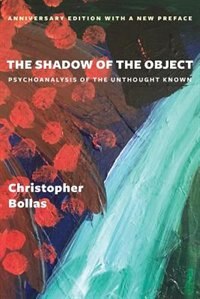
Another book that really stood out to me in the psy-discipline category was Tales of Love (1983) by Julia Kristeva. Her analysis of the ego ideal and the ideal ego as those pertain to what we refer to as love were fundamental to my own breakthrough in terms of understanding my own history and relation to love lost.
However, my runner-up to Christopher Bollas, a very close second, are the novels of Sheila Heti, most especially How Should a Person Be? (2012) but also Motherhood (2018) and Pure Colour (2022). Heti is a phenomenally talented writer at every level (from sentence structure and flow up to the overarching narrative or themes and the ways in which she develops them). The impact of her voice on my own writing is already apparent. In my opinion, this is contemporary writing at its very best. I am thrilled to be starting into her new book, Alphabetical Diaries (2024) as I write this.
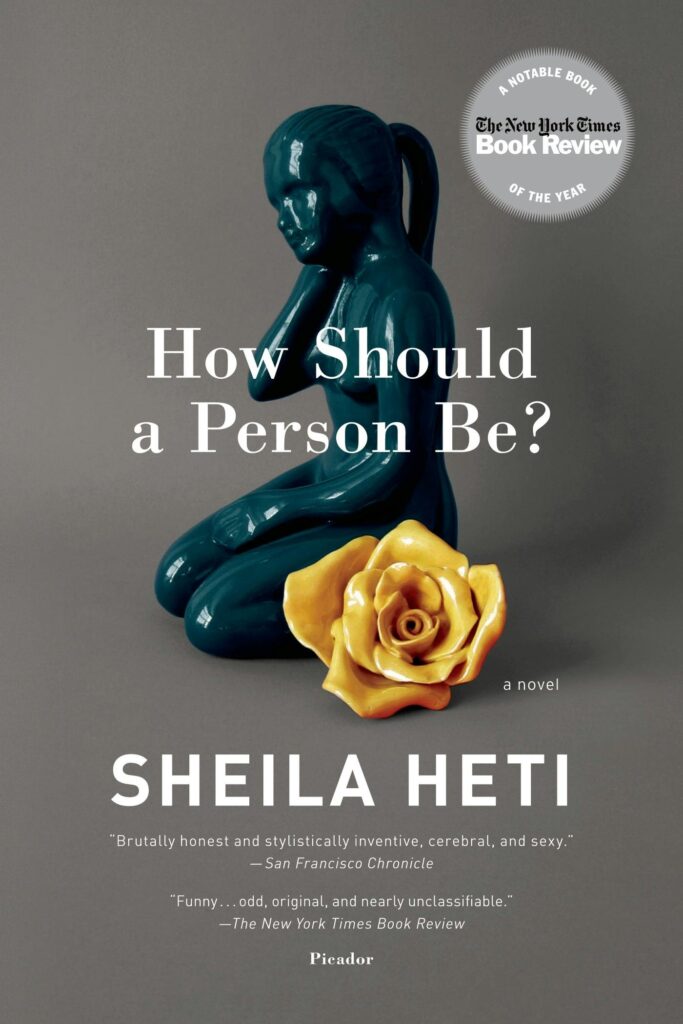
That said, I deliberately focused on reading a lot of female-identified authors in 2023 because I noticed my fiction and literature was looking very androcentric. Of the 42 novels I read, 22 were written by women. So many women authors are, in my opinion, such better writers than a lot of the male-identified authors who get all the praise and awards and critical attention. Stand-outs from this last year, apart from Sheila Heti, include Rachel Cusk, Cahterine Fatima, Elena Ferrante (obviously!), Rivka Galchen, Tess Gunty, Catherine Hernandez, Irmgard Keun, and Nell Zink. I like this trend and intend to have an even higher perecenage of the authors I read in 2024 be female-identified.
Tied in third are Jan Rehman’s Deconstructing Postmodernist Nietzscheanism: Deleuze and Foucault (2022) and Domenico Losurdo’s Liberalism: A Counter-History (2011). Rehman’s book is the best work of critical theory I have read in years. The breadth and scope of his work, his ability to move between intricate technicalities and overall trajectories, and the way in which he clearly communicates complicated things is second-to-none. I’ve always had beef with Deleuze (and, more to the point, Deleuzians) but this is the most damning and thoroughly convincing takedown of Foucault that I have read (and I say that as a tried-and-true Foucauldian who has read all of his books and most of his lectures). It explains why Foucault’s shift from historical criticism to personal ethics and the ways in which he can be so critical of power and so accommodating to neoliberalism. Speaking of neoliberalism, Losurdo’s counter-history of liberalism helps to explain, once and for all, why Liberals are such pricks. Anarchists, Indigenous folks, and others who are organizing within and among oppressed communities have always known this from firsthand experience, but Losurdo clearly demonstrates how oppression, especially as it pertains who establishing and hoarding stolen wealth as private property, is fundamental to the liberal project. I had many “Oh, that makes so much sense!” moments while reading this book. If you like theory, read Rehman. Because damn. And if you want to make more sense of how we got into the mess we are in and where we might start looking (or not looking) for a way out, read Losurdo.

Finally, as a honourable mention, if you like poetry, I loved Your Emergency Contact as Experienced an Emergency (2022) by Chen Chen. A common theme in all my reading, thinking, and watching across genres is how the sacred and the profane, the highfalutin and the crass, the beautiful and the perverse, the devastating and the humourous are intermixed. Chen’s poetry is a marvelous combination of these things. Fabulous in all the ways and I also recommended his earlier collection, When I Grow Up I Want to Be a List of Further Possibilities (2017). If you’re looking for other poets I enjoyed this year, I recommend Sandra Cisneros, Solmaz Sharif, Mike Chaulk, Alice Fulton, and David Whyte.
Movies: The Best of the Best
Four films stand well above all the others I watched in 2023. Heck, these four films are amongst the best I have watched any year. It’s hard to rate them based on their differences in content, style, and affect, but, roughly in order of my personal preference, they are The Banshees of Inisherin (2022) directed by Martin McDonagh, Pleasure (2021) by Ninja Thyberg, Bardo (2022) by Alejandro González Iñárritu, and Medusa (2021) by Anita Rocha de Silveira.
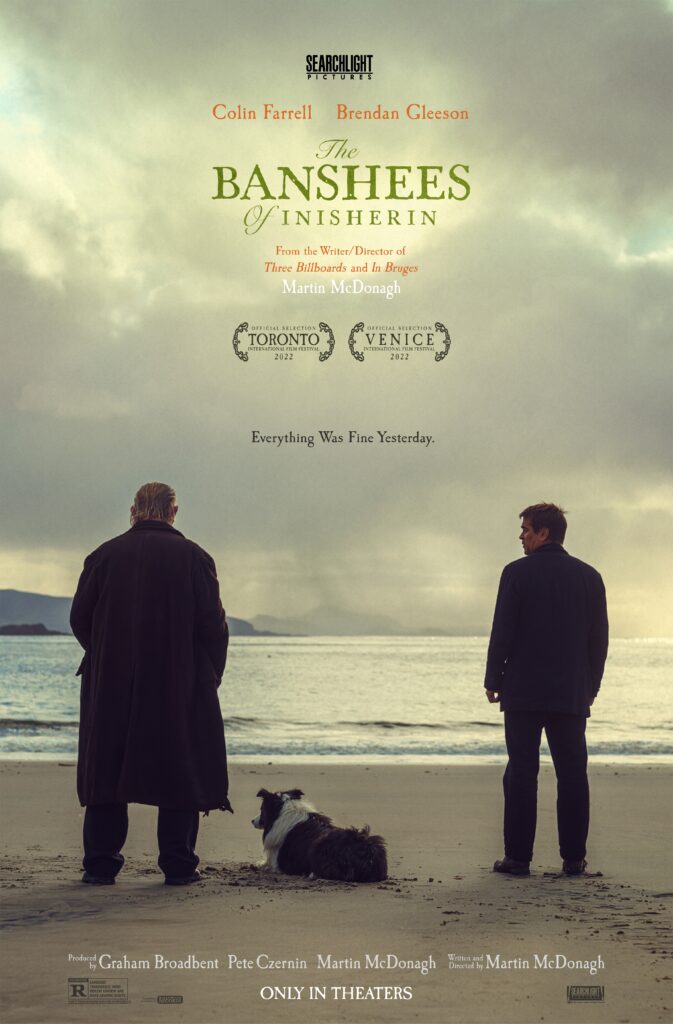
Banshees is a humourous, tender, and then broken-heartedly devastating parable about the Irish Civil War (which followed the Irish War of Independence). My heart still aches when I think of it. I think, too, about how my own solidarity with and among the oppressed has led to the loss of some of my closest childhood friendships (my two best friends from highschool went on to become cops and ended up on the frontlines of the class war the rich are waging against my people). Banshees begins and ends with love. It’s love all the way through. Ah, but what has all our loving done to us? What have we done to ourselves by loving? What do we do with broken hearts that don’t know how to stop loving, even in the midst of all their brokenness? I am reminded of Quasimodo’s words at the end of The Hunchback of Notre Dame…
Quasimodo then lifted his eye to look upon the gypsy girl, whose body, suspended from the gibbet, he beheld quivering afar, under its white robes, in the last struggles of death; then again he dropped it upon the archdeacon, stretched a shapeless mass at the foot of the tower, and he said with a sob that heaved his deep breast to the bottom, ‘Oh—all that I’ve ever loved!
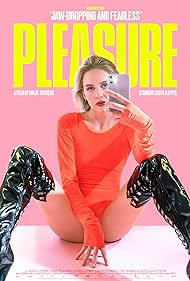
Pleasure is an entirely different story and, of all the films I have seen recently that I felt captured something truly profound about being human while portraying something very difficult to portray in film (in this case, what it’s like to be a young woman trying to make it in the world of online porn), I hesitate to recommend it to others. Not because it is lacking in any way but because I’m not sure how many people are equipped to see what it shows. It honours human agency, the complexity of work with one’s body under the rule of neoliberal capitalism, the nuances of consent, the challenges of working a job where one sometimes doesn’t love what one is doing, the cost-benefit analysis anyone does in that kind of situation, the humanity, the humanity, the humanity. It’s fucking brilliant and the ways in which Ninja Thyberg reverses the lens and gazes at the viewer in some of the most difficult scenes works better than any other film I have seen on this topic. In my opinion, Pleasure ranks just as high as Banshees. They are almost impossible to compare to each other because their content and affect are so different and yet both captures something essential about human hearts and bodies and relationships with other.
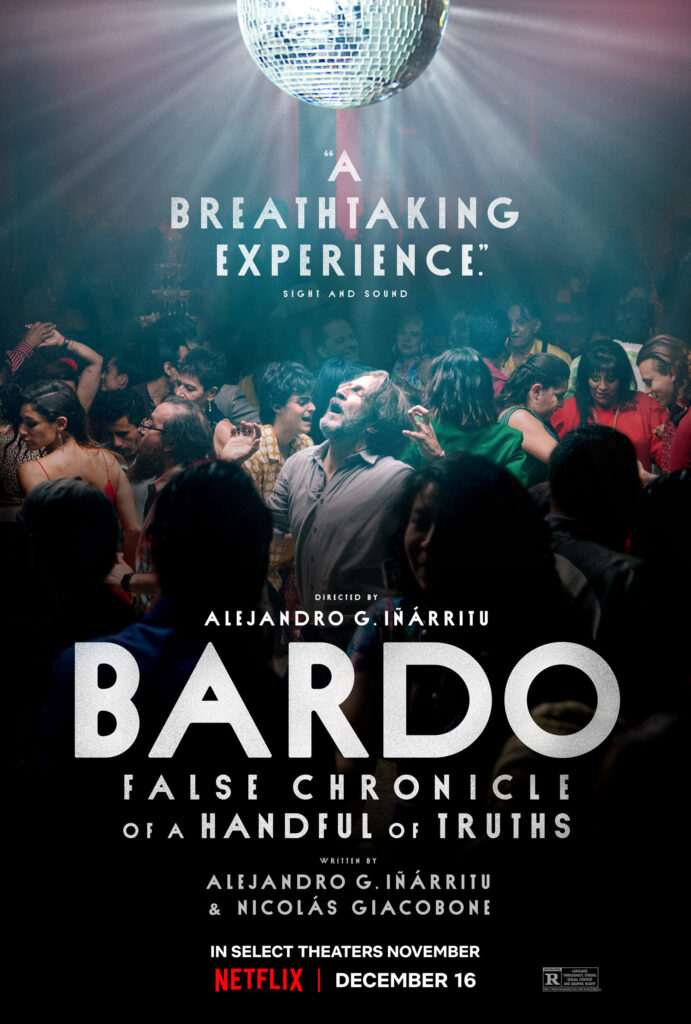
And to all of this love and sex and broken-hearts and steadfast labour, Iñárritu’s Bardo adds magic. The magical realism of fatherhood and artistry interwoven with accounting and the ongoing colonization of the so-called Americas. Far and away his best film, I think this is his magnum opus and swan song. Like Iñárritu was building his whole career to make this movie. It’s sprawling, it’s shocking, it’s hilarious, it’s absurd, it made me suddenly gasp and burst into tears. Twice. Life is all of these things. All together. It is losses we can never bear but do. It is love we can never forget but do. It is violence and it is wonder. It makes me weep and say thank you very much, can I have another, and never again.
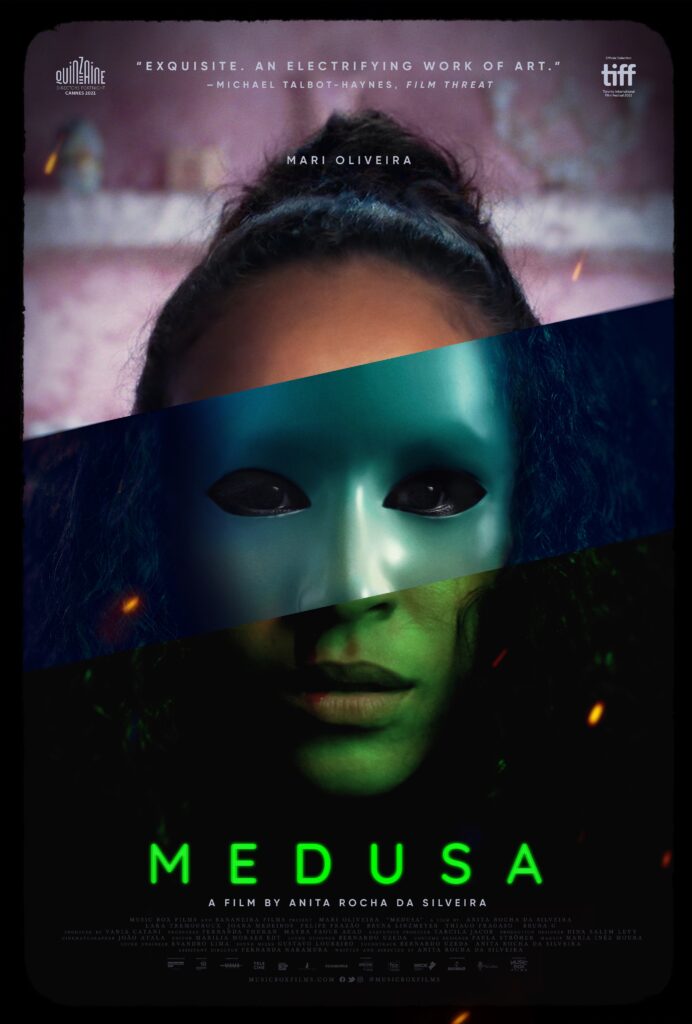
Finally, as an honourable mention, Medusa is Rocha da Silveira’s feminist take on a bit of witchy horror in Brazil. But the true horror is the misogyny and toxic masculinity of Evangelical Christianity that colonizes the young female subjects who engage in lateral violence and punching down before mapping their way to liberation. It’s a brilliant takedown of Conservative Christianity, what it does to women and what it makes women do to one another. By the time the conclusion arrived, I was literally standing up cheering out loud. So good.
And what about documentaries? Well, to be honest, I really struggled to find documentaries that connected with me in 2023. The single exception, a singularly exceptional film, was For Sama (2019) by Waad Al-Kataeb (who shot all the footage) and Edward Watts. Al-Kataeb lived through the uprising in Aleppo fought for liberation, watched all her friends die, was in hospitals as they were bombed, saw civilian after civilian, child after child, brought in from bombed buildings or sniper fire, and made this movie for her daughter who was born during the uprising. Her gaze is unflinching. It’s an absolutely devastating film. I hard-cried over and over throughout. It highlights the utter madness of war. Spending millions of dollars on bombs and planes and bullets and soldiers. To kill children. And women. And doctors. And people who care oh-so-deeply about liberation from oppression and mutual aid. What madness. What cruelty. What great love being annihilated by what great evil. It’s unthinkable and yet it is. And it continues. Because I watched this before Israel started it’s escalation of the genocide it has been carrying out for generations in Palestine. And then, after thinking I would not see anything like For Sama again, at least for a while, my social media was full of similar images of children with their brains falling out, siblings weeping over their bodies, mothers and fathers struck down by grief. Glory to the martyrs. From the river to the sea, and from occupied Palestine to occupied Turtle Island, may we all be free.
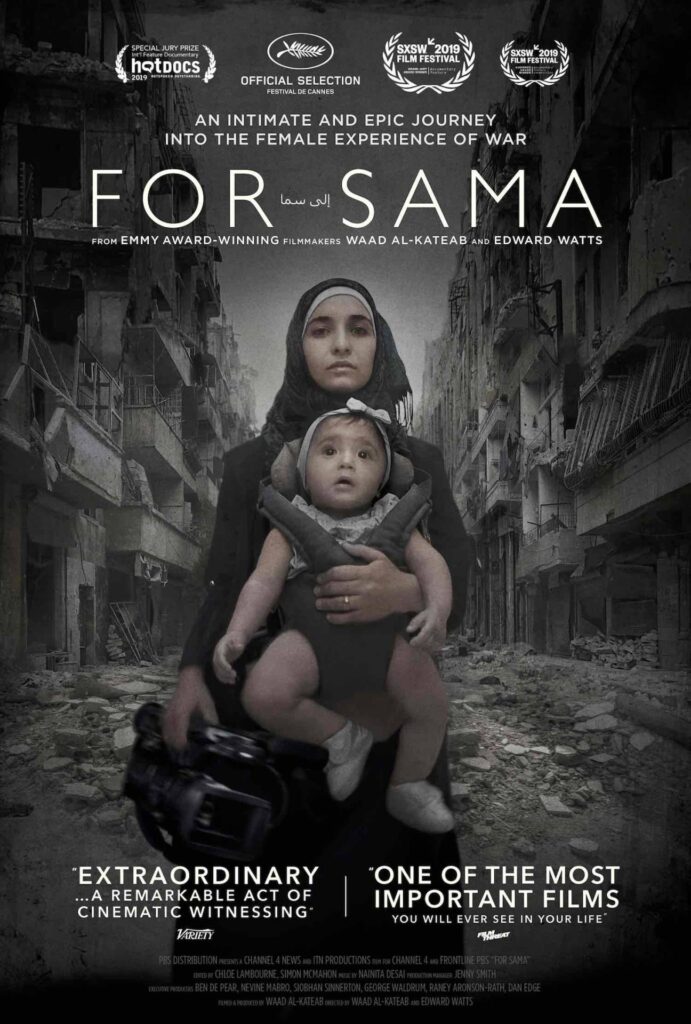
Books: The Worst of the Worst
I’m getting pretty good at not reading things I don’t enjoy but poetry is always hit-and-miss because I read it for a particular reason (I’m more interested in affect than technical prowess). This makes my poetry assessments very high subjective (although I think all poetry assessments are highly subjective in one way or another, so I think this just makes me more honest about what I’m doing with poetry). So I won’t list all the works I didn’t enjoy here except to say that Diego Perez Lacera’s (aka yung pueblo) collection, Inward (2018) was especially awful and I fail to see how anyone might enjoy it other than really moody teenagers. Like really, really moody teenagers. I mean, I incline to moody-teenagerness at times myself but this was just awful.
The worst none fiction book I read this year was Georges Bataille’s first volume of The Accursed Share (1989). You know how sometimes people are smart so they think they can say smart things about every topic they want to speak about and that other people should feel compelled to listen to them even though they know the smart person is only smart about some things and not everything and really should just shut up when it comes to some topics and nobody gives a shit about your hot take? This book felt like that. Ew.
As for fiction, it can’t get much worse that Jean-Baptiste Del Amo’s critically-acclaimed Animalia (2016). It’s like listening to someone describe the shitting scene in Phil Tippett’s Mad God (2021). Only instead of watching that for a few minutes in a fun but creepy but dark but rad stop-motion animation film is just some clinically depressed French dude going on and on and on and on about it for hundreds of pages. Okay, bro, life is shit. People suffer. Animals suffer. Night is dark. Mud is muddy. Shit and piss and shitty and pissy. Cool story, bro.
The List
Here is the complete list of what I read and watched in 2023; (++) for the best works, (+) for great works, and (-) for the least great works. Onwards to 2024. Much love.
Books (162)
Science, Nature, & Travel (13)
- Adee, Sally. We Are Electric: Inside the 200-Year Hunt for Our Body’s Bioelectric Code, and What the Future Holds (2023).
- Barnett, Cynthia. Rain: A Natural and Cultural History (2015).
- Calvo, Paco with Natalie Lawrence. Planta Sapiens: The New Science of Plant Intelligence (2022).+
- Haskell, David George. Sounds Wild and Broken: Sonic Marvels, Evolution’s Creativity, and the Crisis of Sensory Extinction (2022).
- Jeffreys, Tom. The White Birch: A Russian Reflection (2021).-
- McFadden, Johnjoe and Jim Al-Khalili. Life on the Edge: The Coming of Age of Quantum Biology (2014).
- Nezhukumatathil, Aimee. World of Wonders: In Praise of Fireflies, Whale Sharks, and Other Astonishments (2020).
- Proulx, Annie. Fen, Bog & Swamp: A Short History of Peatland Destruction and Its Role in the Climate Crisis (2022).
- Quammen, David. The Tangled Tree: A Radical New History of Life (2018).
- Rovelli, Carlo. Helgoland: Making Sense of the Quantum Revolution (2021 [2020]).
- Sacks, Oliver. Hallucinations (2012).
- Spirn, Anne Whiston. The Language of Landscape (1998).
- Williams, Florence. Breasts: a natural and unnatural history (2012).
Psy-Disciplines (17)
- Bollas, Christopher. Three Characters: Narcissist, Borderline, Manic Depressive (2021).+
- ________. When the Sun Bursts: The Enigma of Schizophrenia (2015).
- ________. Catch Them Before They Fall: The Psychoanalysis of Breakdown (2013).+
- ________. The Shadow of the Object: Psychoanalysis of the Unthought Known (1987).++
- Bowlby, John. Attachment and Loss Volume 1: Attachment (1969).
- ________. Attachment and Loss Volume 2: Separation Anxiety and Anger (1973).
- ________. Attachment and Loss Volume 3: Loss Sadness and Depression (1980).
- Brown, Nina W. Children of the Self-Absorbed: A Grownup’s Guide to Getting Over Narcissistic Parents (2001).
- Grant, Melanie. Disgust: A Memoir (2021).
- Jacoby, Mario. The Analytic Encounter: Transference and Human Relationship (1984).
- Kristeva, Julia. Tales of Love (1987 [1983]).+
- ________. Black Sun: Depression and Melancholia (1989 [1987]).
- Phillips, Adam. Missing Out: In Praise of the Unlived Life (2012).+
- ________. Going Sane (2005).
- ________. Winnicott (1988).
- Phillips, Adam and Barbara Taylor. On Kindness (2009).
- Winnicott, D. W. Playing and Reality (2005 [1971]).
Sex and Gender (4)
- Doolittle, Robyn. Had It Coming: What’s Fair in the Age of #MeToo? (2019).
- Solanas, Valerie. S.C.U.M. Manifesto (1971 [1967]).+
- Solnit, Rebecca. Call Them by Their True Names: American Crises (and Essays) (2018).
- Tatar, Maria. Lustmord: Sexual Murder in Weimar Germany (1995).
Indigenous Studies & Lit (6)
- Belcourt, Billy-Ray. A Minor Chorus (2022).
- Innes, Robert Alexander, and Kim Anderson (eds.). Indigenous Men and Masculinities: Legacies, Identities, Regeneration (2015).
- Methot, Suzanne. Legacy: Trauma, Story, and Indigenous Healing (2021).
- Simpson, Audra. Mohawk Interruptus: Political Life Across the Borders of Settler States (2014).
- Yahgulanaas, Michael Nicoll. Old Growth (2011).
- Young, Robert J. C. Colonial Desire: Hybridity in Theory, Culture & Race (1995).
Race (6)
- Burke, Tarana and Brené Brown (eds.). You Are Your Best Things: Vulnerability, Shame Resilience, and the Black Experience (2021).
- Haider, Asad. Mistaken Identity: Race and Class in the Age of Trump (2018).+
- Kendall, Mikki. Hood Feminism: Notes from the Women that a Movement Forgot (2020).
- Kindinger, Evangelia and Mark Schmitt (eds). The Intersections of Whiteness (2019).
- Neiman, Susan. Learning From the Germans: Race and the Memory of Evil (2020 2019]).
- Shaw. Ron W. London Ontario’s Unrepentant Confederates: The Ku Klux Klan and Rendition on Wellington Street (2018).
Politics and History (11)
- Adler-Bolton, Beatrice and Artie Vierkant. Health Communism (2022).++
- Cameron, Stevie. On the Take: Crime, Corruption and Greed in the Mulroney Years (1995).
- Chapoutot, Johann. Free to Obey: How the Nazis Invented Modern Management (2023 [2020]).
- Fraser, Nancy. The Old is Dying and the New Cannot Be Born: From Progressive Neoliberalism to Trump and Beyond (2019).
- Gellhorn, Martha. The Face of War (1988).
- Losurdo, Domenico. Liberalism: A Counter-History (2014 [2011]).++
- Metzl, Jonathan M. and Anna Kirkland (eds.). Against Health: How Health Became the New Morality (2010).
- Roediger, David. The Sinking Middle Class: A Political History (2022 [2020]).
- Paley, Dawn. Drug War Capitalism (2014).
- Scott, James C. Two Cheers for Anarchism (2012).+
- Supiot, Alain. Homo Juridicus: On the Anthropological Function of the Law (2017 [2007]).
Economics (12)
- Asma, M. I. On Necrocapitalism: A Plague Journal (2021).
- Bourdieu, Pierre. Acts of Resistance: Against the Tyranny of the Market (1998).
- Christophers, Brett. Rentier Capitalism: Who Owns the Economy, and Who Pays For It?
- Collins, Joe. Rent (2022).
- Friedman, Milton. Capitalism & Freedom (1965 [1962]).
- Harvey, David. A Brief History of Neoliberalism (2005).
- Hayek, Friedrich A. The Road to Serfdom (1994 [1944]).
- Lorey, Isabell. State of Insecurity: Government of the Precarious (2015 [2012]).
- McBride, Stephen and John Shields. Dismantling a Nation: Canada and the New World Order (1993).
- Miliband, Ralph. The State in Capitalist Society: The Analysis of the Western System of Power (1973).
- Peck, Jamie. Offshore: Exploring the Worlds of Global Outsourcing (2017).
- Standing, Guy. The Precariat: The New Dangerous Class. Special COVID-19 Edition (2021 [2011]).
Philosophy and General Theory (18)
- Bataille, Georges. The Accursed Shared: An Essay in General Economy. Volume 1: Consumption (1989).-
- Berardi, Franco “Bifo.” The Soul at Work: From Alienation to Autonomy (2009).
- Bergson, Henri. Matter and Memory (1908).
- Canguilhem, Georges. The Normal and the Pathological (1989 [1966]).
- Connolly, William E. A World of Becoming (2011).
- Dean, Mitchell & Daniel Zamora. The Last Man Takes LSD: Foucault and the End of Revolution (2021).+
- De Botton, Alain. Essays in Love (2008).
- ________. Status Anxiety (2004).
- Dorlin, Elsa. Self Defense: A Philosophy of Violence (2022 [2017]).
- Fleury, Cynthia. Here Lies Bitterness: Healing from Resentment (2023 [2020]).
- Han, Byung-Chul. The Agony of Eros (2017).
- Husserl, Edmund. Phenomenology and the Crisis of Philosophy (1965).
- Lazzarato, Maurizio. Capital Hates Everyone: Fascism or Revolution (2021).
- Nancy, Jean-Luc. God, Justice, Love, Beauty: Four Little Dialogues (2011).
- Rancière, Jacques. The Emancipated Spectator (20009 [2008]).+
- Rehmann, Jan. Theories of Ideology: The Power of Alienation and Subjection (2013).+
- ________. Deconstructing Postmodernist Nietzcheanism: Deleuze and Foucault (2022).++
- Sandoval, Chela. Methodology of the Oppressed (2000).
Literature (42)
- Adler, Renata. Speedboat (2013 [1971]).
- Agualusa, José Eduardo. A General Theory of Oblivion (2016 [2013]).
- Asturias, Miguel Ángel. The President (2018 [1946]).
- Backman, Fredrik. Things My Son Needs to Know About the World (2012).
- Barrett, Colin. Homesickness: Stories (2022).
- Cusk, Rachel. Second Place (2021).+
- ________. Aftermath: On Marriage and Separation (2012).-
- Czapski, Józef. Lost Time: Lectures on Proust in a Soviet Prison Camp (2018 [1987]).
- de Assis, Machado. Dom Casmurro (1991 [1900]).
- Del Amo, Jean-Baptiste. Animalia (2019 [2016]).-
- Diaz, Hernan. Trust (2022).
- Egan, Jennifer. A Visit From the Goon Squad (2011).
- Fatima, Catherine. Sludge Utopia (2018).
- Ferrante, Elena. The Lying Life of Adults (2020 [2019]).+
- ________. Frantumaglia: A Writer’s Journey (2016).+
- Galchen, Rivka. Everyone Knows Your Mother is a Witch (2021).
- ________. American Innovations (2014).+
- ________. Atmospheric Disturbances (2008).
- Gunty, Tess. The Rabbit Hutch (2022).+
- Hernandez, Catherine. Scarborough (2017).+
- Heti, Shelia. How is a Person to Be? (2012).++
- ________. Motherhood (2018).+
- ________. Pure Colour (2022)+
- Hunt, Samantha. The Unwritten Book: An Investigation (2022).
- Kertész, Imre. Liquidation (2005 [2003]).
- Keun, Irmgard. After Midnight (2020 [1937]).+
- Koch, Herman. The Dinner (2013 [2009]).
- Kochai, Jamil Jan. The Haunting of Hajji Hotak: And Other Stories (2022).+
- Krasznahorkai, László. Spadework for a Palace (2022 [2018]).
- Lessing, Doris. The Golden Notebook (1962).
- Macrae Burnett, Graeme. Case Study (2022).
- Miller, Madeline. Circe (2018).
- Möring, Marcel. The Great Longing (1995 [1992]).+
- Morissette, Guillaume. The Original Face (2017).
- Rulfo, Juan. Pedro Páramo (1987 [1955]).+
- Saunders, George. The Brief and Frightening Reign of Phil (2005).
- So, Anthony Veasna. Afterparties: Stories (2021).
- Stuart, Douglas. Young Mungo (2022).
- Tatar, Maria. Enchanted Hunters: the power of stories in childhood (2009).
- Tolstaya, Tatyana. On the Golden Porch (1989 [1987]).
- Von Kleist, Heinrich. The Marquise of O— And Other Stories (1978 [c.1807]).
- Zink, Nell. The Wallcreeper (2014).+
Poetry (18)
- Brodsky, Joseph. To Urania (1992 [1977, 1987]).-
- Chaulk, Mike. Night Lunch (2020).+
- Chen, Chen. Your Emergency Contact Has Experienced an Emergency (2022).++
- Cisneros, Sandra. My Wicked Wicked Ways (1987).+
- Cohen, Leonard. The Flame: Poems and Selections from Notebooks (2018).-
- Cruz, Cynthia. Hotel Oblivion (2022).
- Del Rey, Lana. Violet Bent Backwards Over the Grass (2020).
- Fulton, Alice. Powers of Congress: Poems (1990).+
- Gripp, Andreas (ed.). Stones Beneath the Surface: A Poetry Anthology (2023).
- Ibn `Arabi, Muhyiddin. The Translator of Desire: Poems (Trans. By Michael Sells, 2021).
- Lacera, Diego Perez (yung pueblo). Inward (2018).-
- Oloruntoba, Tolu. The Junta of Happenstance (2020).-
- Peacock, Molly. Original Love: Poems (1995).
- Rexroth, Kenneth. One Hundred Poems from the Chinese (1971).
- Sharif, Solmaz. Customs: Poems (2022).+
- Tsvetaeva, Marina. Selected Poems (translated and introduced by Elaine Feinstein [1993]).
- Waldman, Anne. Trickster Feminism (2018).-
- Whyte, David. Everything is Waiting for You (2003).+
Graphic Novels (6)
- Beaton, Kate. Ducks Two Years in the Oil Sands (2022).
- Carlin, John and Oriol Malet. Mandela and the General (2018).
- Catel & Bocquet. Josephine Baker (2017).
- Findakly, Brigitte and Lewis Trondheim. Poppies of Iraq (2017).
- Siris. The Vagabond Valise (2017).
- Steacy, Joan. Aurora Borealice (2019).
Memoirs (3)
- Delaney, Rob. A Heart That Works (2022).+
- Lorr, Benjamin. Hell-Bent: Obsession, Pain, and the Search for Something like Transcendence in Competitive Yoga (2012).
- McCurdy, Jennette. I’m Glad My Mom Died (2022).
Spirituality (3)
- De Mattos Frisvold, Nicholaj. Pomba Gira and the Quimbanda of Mbùmba Nzila (2011).
- Maggi, Humberto. Queen of the Seven Crossroads (2020).
- Maggi, Humberto and Verónica Rivas. Maria de Padilla: Queen of the Souls (2015).
Movies (53)
- Akl, Mounia. Costa Brava, Lebanon (2022).+
- Anderson, Wes. Asteroid City (2023).+
- Aster, Ari. Beau is Afraid (2023).-
- Baker, Sean. Red Rocket (2021).+
- Baumbach, Noah. White Noise (2022).
- Cianfrance, Derek. Blue Valentine (2010).+
- Colangelo, Sara. The Kindergarten Teacher (2018).
- Coote, Suzanne and Matt Angel. The Wrath of Becky (2023).-
- Cronenberg, Brandon. Possessor: Uncut (2020).
- ________. Infinity Pool (2023).-
- Cronenberg, David. Crimes of the Future (2022).
- De Swaef, Emma, et al. The House (2022).
- del Toro, Guillermo, and Mark Gustafson. Pinocchio (2022).
- Ford, John Patton. Emily the Criminal (2022).
- Gerwig, Greta. Barbie (2023).+
- Giannopoulos, Jimmy. Alone at Night (2022).-
- Guadagnino, Luca. Bones and All (2022).
- Gyllenhaal, Maggie. The Lost Daughter (2021).
- Harris, Ryan Stevens. Moon Garden (2022).
- Haynes, Todd. May December (2023).-
- Hillcoat, John. The Proposition (2005).-
- Hyams, John. Sick (2022).-
- Iñárritu, Alejandro González. Bardo: False Chronicle of a Handful of Truths (2022).++
- Johnstone, Gerard. M3GAN (2023).
- Jones, Lee Haven. Gwledd/The Feast (2021).
- Jusu, Nikyatu. The Nanny (2022).
- Khabensky, Konstantin. Sobibor (2018).
- Loach, Ken. Sorry We Missed You (2019).+
- Loznitsa, Sergei. Donbass (2018).
- MacKenzie, David. Hell or High Water (2016).
- Mcdonagh, Martin. The Banshees of Inisherin (2022).++
- McKay, Chris. Renfield (2023).
- Mylod, Mark. The Menu (2022).
- Östlund, Ruben. Triangle of Sadness (2022).+
- Øvredal, André. The Last Voyage of the Demeter (2023).
- Reichardt, Kelly. First Cow (2019).+
- Scorsese, Martin. Killers of the Flower Moon (2023).
- Shyamalan, M. Night. Knock at the Cabin (2023).
- Silveira, Anita Rocha de. Medusa (2021).++
- Story, Tim. The Blackening (2022).+
- Tafdrup, Christian. Speak No Evil (2022).+
- Taylor, Tate. Ma (2019).-
- Thyberg, Ninja. Pleasure (2021).++
- Trier, Joachim. The Worst Person in the World (2021).
- Triet, Justine. Anatomy of a Fall (2023).+
- Van Den Brink, Nico. Moloch (2022).
- Watkins, James. Eden Lake (2008).-
- Wells, Charlotte. Aftersun (2022).
- West, Ti. Pearl (2022).-
- Wilde, Olivia. Don’t Worry Darling (2022).
- Wright, Tom. The Stranger (2022).
- Yamamoto, Eiichi. Belladonna of Sadness (1973).+
- Zoppis, Matteo and Alessio Rigo de Righi. The Tale of King Crab (2022).
Documentaries (36)
- Abrams, Kevin. I Got a Monster (2023).+
- Al-Kataeb, Waad and Edward Watts. For Sama (2019).++
- Angelini, Giorgio. Owned: A Tale of Two Americas (2018).
- Askey, Colin. Love in the Time of Fentanyl (2023).+
- Berg, Amy. Phoenix Rising (2022).
- Block, Hans and Moritz Riesewieck. The Cleaners (2018).
- Brown, Margaret. Descendants (2022).
- ________. The Order of Myths (2008).+
- Bustnes, Håvard. Golden Dawn Girls (2017).
- Canner, Liz. Orgasm Inc.: The Story of OneTaste (2009).
- Cooley, Mark G., and Derek Ellis. Fighting Indians! (2021).+
- Cooper, Emma. Depp v. Heard (2023).-
- Crist, Olivia and Julia Willoughby Nason. Shiny Happy People: Duggar Family Secrets (2023).+
- Denison, Ramsey. What Happened in Vegas (2017).
- ________. Money Machine (2020).
- Farrier, David. Mister Organ (2022).
- Fleit, Rachel. Bama Rush (2023).
- Gordon, Daniel. FIFA Uncovered (2022).
- Hillinger, Suzanne. Money Shot: The Pornhub Story (2023).
- Hurt, Byron. Hazing (2022).
- Lope, Patrick and Nicholas Mross. Running with Speed (2023).
- MacFarlane, Ursula. Anna Nicole Smith: You Don’t Know Me (2023).
- Malkinson, Louise. MH370: The Plane That Disappeared (2023).
- Mannucci, Mark. Unknown: Cave of Bones (2023).-
- Menkes, Nina. Brainwashed: Sex-Camera-Power (2022).
- Motskin, Yon. Encounters (2023).
- Ophuls, Marcel. The Troubles We’ve Seen (1994).+
- Oskouei, Mehrdad. Sunless Shadows (2019).+
- Patierno, Francesco. Cammora (2018).
- Peck, Raoul. Silver Dollar Road (2023).
- Rafferty, Kevin. Harvard Beats Yale 29-29 (2008).
- Renzi, Andrew. Pepsi, Where’s My Jet? (2022).
- Vile, Jesse. Curse of the Chippendales (2021).
- Webster, Justin. I Will Be Murdered (2013).
- White, Ryan. Pamela: A Love Story (2023).+
- Williams, Liza. Hell Camp: Teen Nightmare (2023).
Thank for the reviews.
How is this even possible, Dan❤️